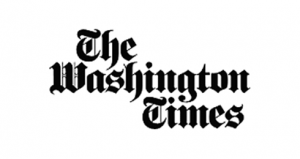
(This post originally appeared on The Washington Times)
Startups in 2020 soared. According to data just published by the U.S. Census Bureau,during the 12 months of 2020 there were approximately 4.3 million new business applications filed (seasonally adjusted), compared to 3.5 million filed in 2019, an increase of almost 23%. That’s a huge number.
There are many factors driving this trend, including the low cost of starting a new business, the pandemic-associated need for extra income and even a growing ability of employees — thanks to remote working — to launch a new venture while still holding down a corporate job. But that’s another topic for another day. For now, let’s at least address this question: considering all the data we have, where are these new businesses being launched?
Some surveys, like the annual study from financial site Wallet Hub, likes to rank the best states for startups on a number of factors such as tax burden, access to higher education, cost of rents and government regulations. Other surveys, such as this recent one from another financial site, Smart Asset, looks at business “sentiment” as a critical factor for startups.
Politically, people on the right like to think that “red” states — because of their tendency toward lower tax rates and less government interference — attract more businesses. The Wallet Hub survey is consistent with this theory: eight out of the top 10 states ranked best for startups voted Republican in the 2020 elections.
But the actual numbers tell a different story. Based on the data from the Census Bureau, it turns out that blue states are just as popular as red states when it comes to starting up a business. Here are the top 10 states for business filings in 2020:
1. Florida
2. California
3. Texas
4. Georgia
5. New York
6. Illinois
7. New Jersey
8. North Carolina
9. Michigan
10. Pennsylvania
The 10 states with the lowest number of startup applications in 2020 (1 being the lowest) were:
1. Alaska
2. Vermont
3. Wyoming
4. North Dakota
5. South Dakota
6. Rhode Island
7. Maine
8. West Virginia
9. New Hampshire
10. District of Columbia
Of the top 10 most popular states for startups, six of them (California, New York, Illinois, New Jersey, Michigan and Pennsylvania) voted Democrat in the 2020 presidential elections. Of the least popular states for startups in 2020, half of those states voted Republican. It’s a split. Entrepreneurs don’t seem to care which states lean which way.
Of course, this analysis is population driven. The highest number of startups generally corresponded to the most populated states. That certainly makes sense. The more people, the more chance of startups, right?
Actually, no. It turns out that even in the most populated states with the most startups, the rate of startup applications per capita was also higher for the big states even when compared to the less populated states.
For example, during the 13-month period from January 2020 through January 2021, Georgia had 304,895 applications filed for a population of 10,627,767 or 2.87%. Florida had a ratio of 2.53%. Texas was at 1.48%. The blue states weren’t that much further behind. Illinois was at 1.52% and both New York and Michigan had startup rates of 1.46% of their population.
Many people think that the pandemic-driven work-from-anywhere trend, cloud computing, protests, disruptions and other factors would drive startups away from more populated states and cities to more desirable and less dense areas of the country that would seemingly offer a better quality of life both for entrepreneurs and their employees.
But, judging from 2020’s numbers, that’s still not happening.

